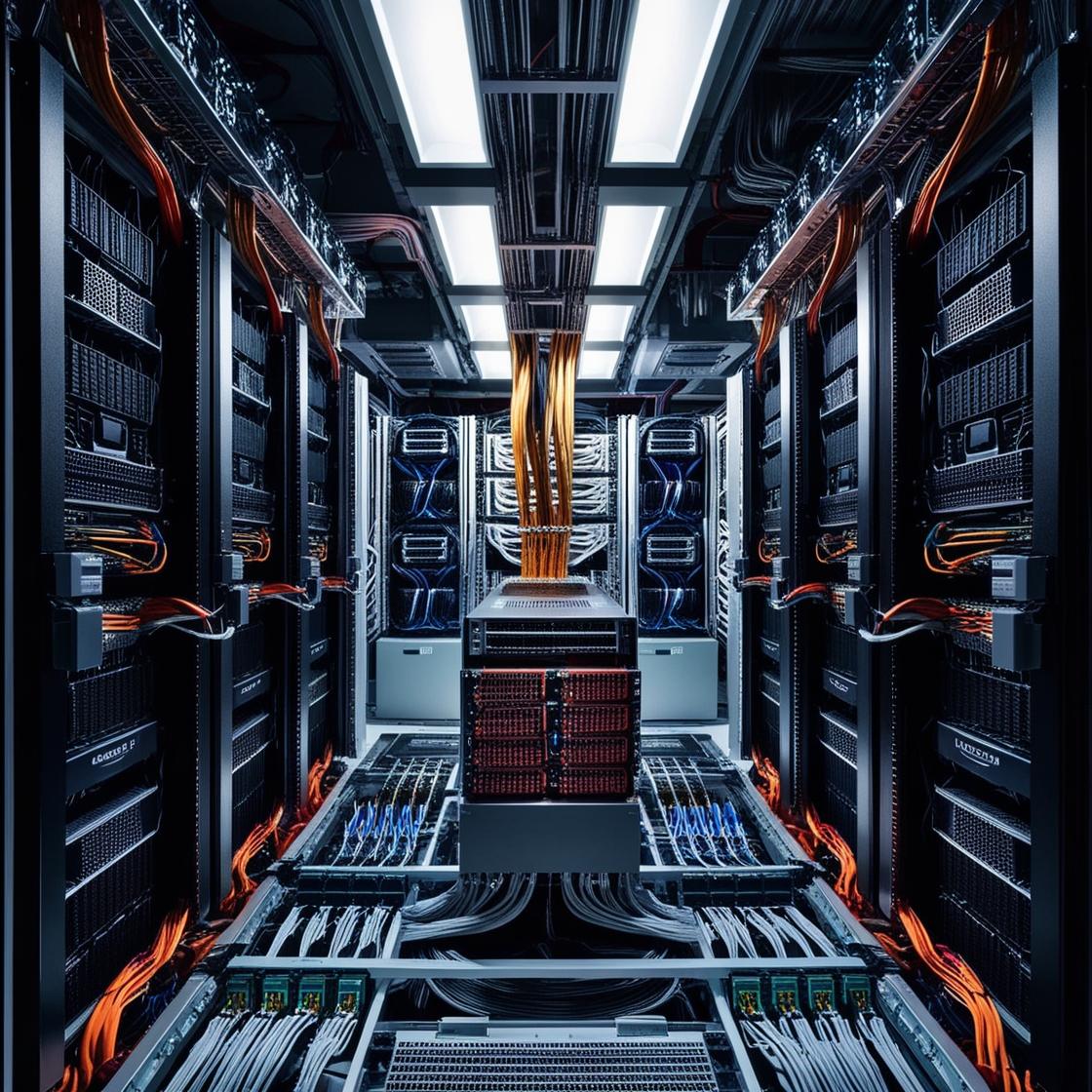Data centers, the unsung heroes of the internet infrastructure, play a vital role in the functionality of the digital world. These specialized facilities are designed to securely and systematically store and process massive amounts of information and services, ensuring that websites are accessible 24/7. In this article, we will explore what data centers are, how they operate, and why they are critical for web hosting.
What is a Data Center?
A data center is a specially designed facility used to store, process, and distribute large amounts of data. These facilities comprise servers, network devices, storage units, backup systems, and other IT equipment. Data centers enable the operation of various digital services, from cloud services to websites. Essentially, everything you see on the internet is stored in and accessed from a data center.
The core functions of data centers include:
Data Storage: A physical space where all digital information is securely stored.
Data Processing: Processing data through servers to produce meaningful outcomes.
Network Communication: Sharing data with users or other systems.
Structure of a Data Center
A data center is more than just a highly secure physical facility. Thanks to its technology and infrastructure, it ensures data security, constant accessibility, and performance. Data centers typically include the following elements:
Servers: Powerful computers that run internet websites, applications, and data repositories.
Network Equipment: Devices like routers and switches that manage data flow.
Cooling Systems: Advanced cooling systems to prevent servers from overheating.
Backup Power Supplies: Generators and UPS systems provide uninterrupted power in case of an electrical outage.
Security Systems: Physical security measures (access control, cameras, biometric security) and digital security measures (firewalls, data encryption) are present in data centers.
What is Web Hosting?
Web hosting is a service that makes a website accessible on the internet. The files, texts, images, videos, and other content of your website are stored on a server, and internet users access your site through these servers. When you purchase a hosting service, you are essentially placing your site on servers located within a data center. This is where the role of data centers comes into play.
The Importance of Data Centers in Web Hosting
The quality of a data center directly affects the performance and security of your website. Knowing which data center is used and understanding its features is critical for the future of your site. Let’s look at why data centers are so essential for web hosting:
1. Constant Accessibility
24/7 accessibility of your website is crucial, especially for e-commerce sites and service providers. Data centers provide uninterrupted service thanks to backup power supplies and network connections. High uptime rates ensure that your website is always accessible and do not disrupt your users’ experience.
2. Data Security
When purchasing web hosting services, ensuring the security of your data is a top priority. Data centers offer both physical and digital security with advanced security measures. Cybersecurity measures like data encryption, firewalls, and DDoS protection safeguard your site from potential threats.
3. Backup and Recovery
Data loss can pose a significant risk to a website. Regular backups are performed in data centers, and data is stored securely. In the event of a disaster or system failure, data recovery can be quickly and smoothly executed from these backups.
4. High Performance
The quick loading of your website is crucial for keeping visitors on your site and achieving a good ranking in search engines. Data centers enhance your site’s performance with high-speed internet connections and powerful servers. A fast site not only provides an SEO advantage but also increases user satisfaction.
5. Geographic Location
The location of data centers also significantly impacts your website’s performance. Hosting your site in a data center close to your target audience reduces page loading times and improves user experience. Therefore, the locations of your hosting provider’s data centers should be suitable for your site’s target audience.
6. Scalability
As your website grows, you may need more resources and storage space. Data centers offer scalable solutions as your needs increase. You can enhance your server capacity to meet the resources required by your site.
Types of Data Centers
There are various types of data centers to suit different needs and budgets. Here are the most common types of data centers:
Enterprise Data Centers: Private data centers set up within large businesses. These centers provide high security and performance but are costly.
Service Provider Data Centers: Data centers offered by web hosting companies. They typically provide cloud services and are suitable for small businesses and individual users.
Colocation Data Centers: Facilities where businesses place their own servers but the data center infrastructure is managed by a provider.
Criteria for Choosing a Data Center When Selecting a Web Hosting Provider
When choosing a web hosting provider, the features of the data center are crucial. The following criteria should be considered when evaluating your provider’s data center:
Security Measures: The data center should have security features that protect against cyber attacks, including firewalls, DDoS protection, and physical security measures.
Backup and Recovery Plans: Check whether the data center offers regular backup and data recovery services.
Uptime Guarantee: Data centers that offer a 99.9% uptime guarantee ensure that your site operates continuously.
Performance: The server hardware, connection speeds, and infrastructure features of the data center enable your site to operate quickly and efficiently.
Conclusion
Data centers form the backbone of modern internet infrastructure and provide the foundation for web hosting services. The security, speed, accessibility, and performance of your website largely depend on the quality of the data center. A good choice of data center ensures that your site operates successfully, enhances user satisfaction, and offers significant advantages as you grow your business. When purchasing web hosting services, paying attention to the security, performance, and backup features provided by the data center is critical for the future of your site.






